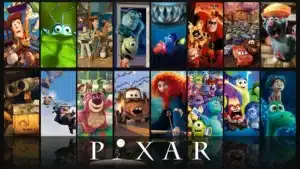Book bans in schools and other institutions across the country have become a great concern for many people, including parents who do not agree with these bans taking place in their children’s schools. PEN America, a company that was created for writers over 100 years ago, is also taking a stance on the issue. This company provides fellowships and grants to writers, while also defending their freedom to write content of their choice. PEN America has been tracking book bans across the country for the past three years. They are appalled at the amount of content that’s been taken off the shelves. But how did this widespread banning of books get started?
Book Bans In America
In 2021, a conservative movement was formed with the intent of banning books in schools, libraries, and other institutions due to what they considered to be inappropriate content. This movement took part in local campaigns and put a lot of pressure on school districts, librarians, and educators to remove certain books from their establishments. This movement has been very successful and a great deal of content has been removed from shelves across the country. These book bans have impacted a great deal of reading material across many literary genres.
The Content Being Banned
Through the success of the movement, public schools, colleges, and universities have all been affected. Across these institutions, many policy changes were enacted and laws in certain states have even been changed to accommodate the bans. The goal of the movement was to prevent information on certain topics from being made available to children and young adults. What topics? Some examples are controversial viewpoints in American history, as well as historical facts about people of color. Education about LGBTQ+ individuals is also among the content that’s been banned. Sexual education has been targeted as well.
PEN America states that this movement and its campaign for widespread book bans “uses falsehoods, fear, and hatred to dehumanize, dismiss, and diminish important voices in the public sphere.” They go on to say that “these efforts are reshaping American public education.” As mentioned, PEN America has been keeping track of the number of book bans that have taken place in schools over the past few years. Let’s take a closer look at what they found.
The Prevalence of Bans In Schools

PEN America’s research shows that in the 2023-2024 school year, over 10,000 books were banned. This number was more than double the amount from the previous year. About 8,000 of these books were banned in Florida and Iowa alone, due to state laws in those locations. The company says that sexual content was highly targeted. These included books about women’s experiences of being raped, in addition to books with LGBTQ+ characters or themes. One book that was targeted was The Color Purple by Alice Walker. Another was The Bluest Eye and Beloved by Toni Morrison.
PEN America mentions two key pressures concerning the school book ban movement. The first is state legislation and the second is the influence of certain conservative groups. The latter puts a strong emphasis on parental rights, using this rhetoric to get more people on board with their censorship goals. Institutions have had much pressure put on them, causing them to be “overly cautious” when deciding what material could stay on the shelves.
In addition, many parents are upset that their children’s freedom to read a wide variety of material has been compromised. Many of them are concerned that their children will not be educated in certain areas because of these book bans. While the purpose of the banning is said to protect the children, many feel that the opposite is true. An example is preventing a child from being exposed to a topic such as sexual education. One could argue that not making this education available to them could do more harm than good.
The American Library Association Weighs In
The American Library Association conducted a survey and found that 70% of parents opposed book bans in public libraries. The ALA says that during the first half of the 2022 to 2023 school year, 26% of the book bans were placed on books that dealt with LGBTQ+ issues. Another 30% of the bans were on books that discussed race or racism. They emphasize that these bans have been very disproportionate, with a large number of restricted books being written by or about people of color. They say, “Banning books about LGBTQ+ and racial equity topics doesn’t stop children from being curious about different topics. It merely blocks an important medium through which they can learn.”
Final Thoughts
The banning of books in schools and institutions across the country has become a huge topic of controversy over the past few years, and the situation is escalating. Considering the increasing number of books being banned each year, it’s safe to assume that many more books will be removed from the shelves in 2025. But where will this end? It seems that whether or not these bans will be allowed to continue will eventually have to be ruled on by a higher authority. However, when that will be and what it will entail is yet to be seen.








